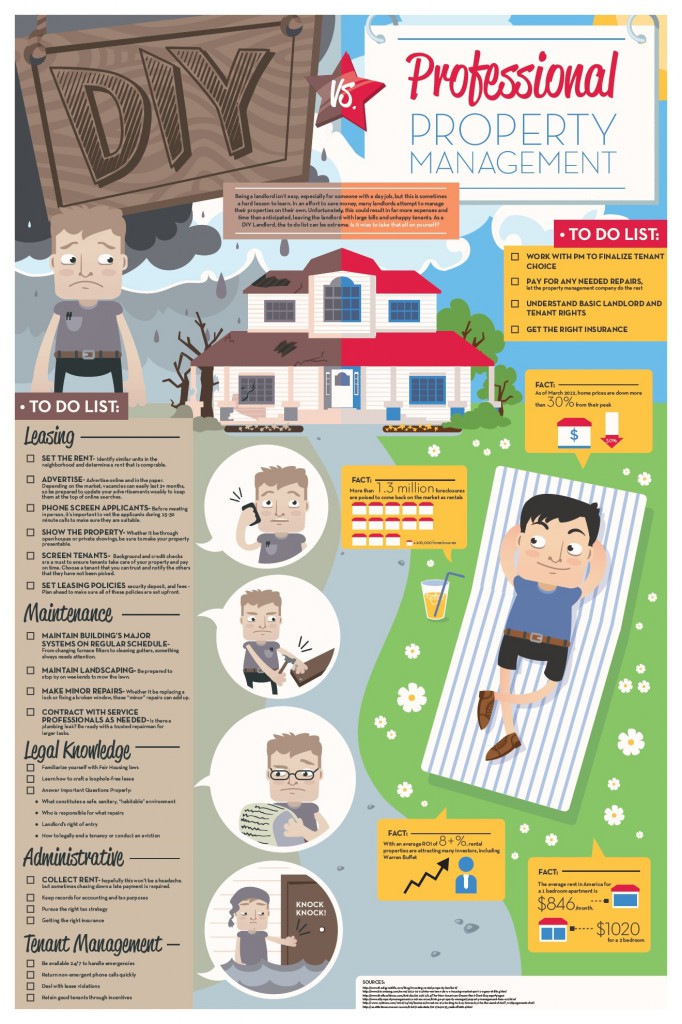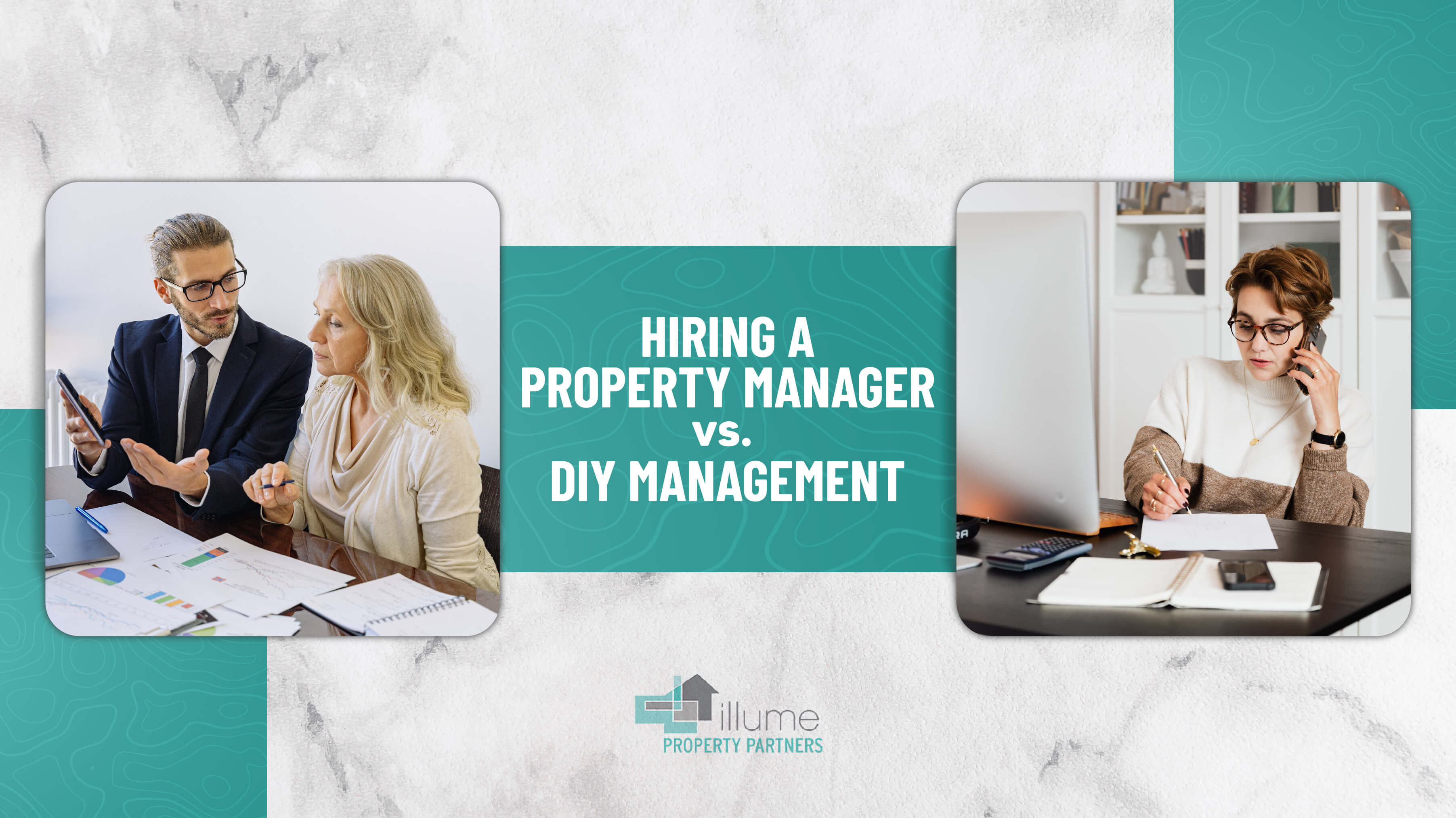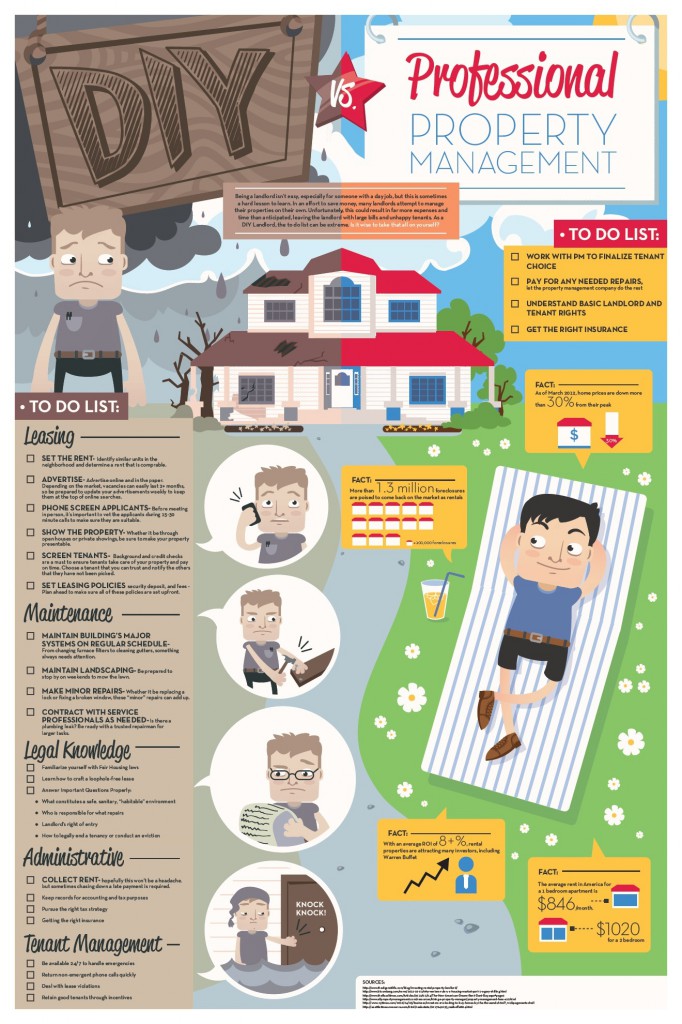DIY Property Management: Is It the Right Choice for You?
Property management is a crucial part of being a successful real estate investor. Whether you own residential or commercial properties, managing your investment can be a time-consuming and complex process. Many property owners face a dilemma—should they hire a property management company or take the DIY (do-it-yourself) route?
In this article, we’ll delve into the pros and cons of DIY property management, helping you determine whether managing your property on your own is a viable and profitable option.

What Is DIY Property Management?
DIY property management refers to the process where property owners handle all aspects of property management themselves, rather than hiring a professional property management company. From finding tenants and collecting rent to handling maintenance requests and ensuring legal compliance, the property owner assumes full responsibility for all aspects of property management.
Key Responsibilities of DIY Property Management:
- Tenant Screening: Finding reliable tenants who will pay rent on time and maintain the property.
- Rent Collection: Setting up systems for timely rent collection, ensuring tenants pay on schedule.
- Property Maintenance: Handling or coordinating repairs, renovations, and upkeep of the property.
- Lease Agreements: Drafting lease agreements, ensuring they are legally compliant and enforceable.
- Legal Compliance: Ensuring that your property complies with landlord-tenant laws, safety regulations, and local ordinances.
- Evictions: In case of non-payment or lease violations, the property owner must manage the eviction process.
DIY Property Management vs. Hiring a Property Manager
Many property owners face the decision of whether to manage their property themselves or hire a property management company. Below is a comparison of DIY management and hiring professionals:

| Aspect | DIY Property Management | Hiring a Property Manager |
|---|---|---|
| Time Commitment | High – managing property full-time | Lower – property manager handles everything |
| Expertise | Limited to your knowledge and experience | Extensive, including legal, marketing, and maintenance expertise |
| Tenant Screening | Self-conducted, can be time-consuming and subjective | Professional screening ensures better tenants |
| Legal Compliance | Responsibility for keeping up-to-date with laws | Experienced property managers stay current with laws |
| Costs | No management fees, but costs of mistakes (evictions, vacancies) | Typically 8%-12% of monthly rent, plus additional fees |
| Stress Level | High – managing day-to-day operations | Lower – hands-off management |
| Risk | Higher – handling issues personally | Lower – experienced management reduces risks |
Advantages of DIY Property Management
While hiring a property management company can offer many benefits, there are also notable advantages to managing your property on your own. Here’s a look at the key benefits of DIY property management:
1. Cost Savings
One of the biggest advantages of DIY property management is cost savings. Property management companies typically charge a percentage of the monthly rent (usually 8%-12%). By managing the property yourself, you avoid these fees, keeping more of your rental income.
However, it’s important to note that DIY property management can also come with hidden costs, such as:
- Eviction Costs: If a tenant defaults on rent or violates the lease, evicting them can be costly and time-consuming.
- Maintenance Costs: Without a professional network of contractors, you may end up paying higher rates for repairs.
- Legal Costs: Failing to comply with landlord-tenant laws could result in costly legal fees and penalties.
2. Complete Control
When you manage your property, you have full control over every decision, from tenant selection to maintenance schedules. This means you can make decisions that align with your preferences, without having to compromise with a property management company.
For example, you can:
- Set your own rent prices based on your knowledge of the local market.
- Choose tenants based on personal interactions and intuition.
- Handle repairs and maintenance personally or with contractors you trust.
3. Direct Communication with Tenants
When you’re the property manager, you communicate directly with your tenants. This can lead to stronger relationships and a better understanding of their needs. You’re able to handle issues and requests immediately, without waiting for a middleman.
4. Learning Experience
Managing your own property can be a valuable learning experience. You’ll gain insight into property management best practices, tenant relations, and legal requirements. This knowledge can prove useful if you decide to expand your real estate portfolio in the future.
Challenges of DIY Property Management
While there are clear benefits to DIY property management, it’s not without its challenges. Below are some of the obstacles you may face when managing a property on your own:
1. Time-Consuming
Managing a property is a full-time job. From responding to tenant inquiries and maintenance requests to handling rent collection and evictions, the work never stops. If you have other responsibilities, such as a full-time job or family commitments, DIY property management can be overwhelming.
2. Tenant Management Issues
Dealing with difficult tenants can be one of the most stressful parts of DIY property management. You may encounter late rent payments, property damage, or tenant disputes. If you lack experience, these issues can escalate quickly and negatively impact your rental income.
3. Legal and Regulatory Knowledge
Keeping up with local, state, and federal laws can be tricky. Landlord-tenant laws are complex and vary by location. Failure to follow proper procedures, such as handling security deposits or evictions, can lead to costly legal problems.
4. Maintenance and Repairs
Even small maintenance tasks can become overwhelming, especially if you lack experience in repairs. Having to constantly coordinate or perform maintenance can take a toll on your time and energy. If you don’t know how to fix an issue, you may have to hire professionals, which can be costly.
5. Financial Management
If you aren’t experienced in managing the finances of a rental property, you may struggle with accounting and tax preparation. Property management companies often provide detailed financial reporting, but with DIY management, you’ll need to track income, expenses, and tax deductions on your own.
Is DIY Property Management Right for You?
DIY property management can work well for some property owners, but it isn’t for everyone. Here are a few factors to consider when deciding whether DIY property management is the right choice:
1. How Many Properties Do You Own?
If you own just one or two properties, managing them on your own might be feasible. However, if you own multiple properties, DIY property management can become overwhelming, and you may want to consider hiring a professional.
2. Your Knowledge of Property Management
If you have experience in managing properties or are willing to learn about landlord-tenant laws, maintenance, and financial management, DIY property management might be a good fit for you.
3. How Much Time Can You Commit?
If you have the time and are willing to dedicate it to managing your property, DIY property management can be a rewarding experience. If you’re short on time or have other commitments, you might want to consider hiring a property management company.
4. Your Risk Tolerance
If you’re risk-averse and want to minimize the likelihood of legal disputes or problematic tenants, it may be better to hire a property management company with experience in handling these situations.
FAQs About DIY Property Management
1. How do I screen tenants for my property?
Tenant screening is a critical part of DIY property management. You should check the tenant’s credit score, rental history, and conduct a background check to ensure they are reliable and responsible.
2. What if a tenant refuses to pay rent?
If a tenant doesn’t pay rent, you’ll need to follow the legal eviction process. This may include sending reminders, issuing a formal eviction notice, and potentially going to court.
3. How do I handle maintenance issues?
For routine maintenance, you can hire contractors or handle repairs yourself if you’re qualified. It’s important to address maintenance issues promptly to keep tenants happy and avoid larger problems down the road.
4. How much should I charge for rent?
Research the local market to determine fair rent prices for your property. You can look at comparable properties in the area and set a competitive rate that will attract tenants while still being profitable for you.
Conclusion
DIY property management can be a great option for experienced property owners who want to save money and retain control over their investments. However, it’s important to recognize the challenges involved, from time management and tenant relations to legal compliance and property maintenance.
If you have the time, knowledge, and commitment to manage your property, DIY management can be rewarding. However, if you find that the tasks become overwhelming, it may be worth considering a professional property management company. Ultimately, the choice depends on your preferences, your available time, and your long-term investment goals.
To learn more about property management, check out this guide on property management basics.

